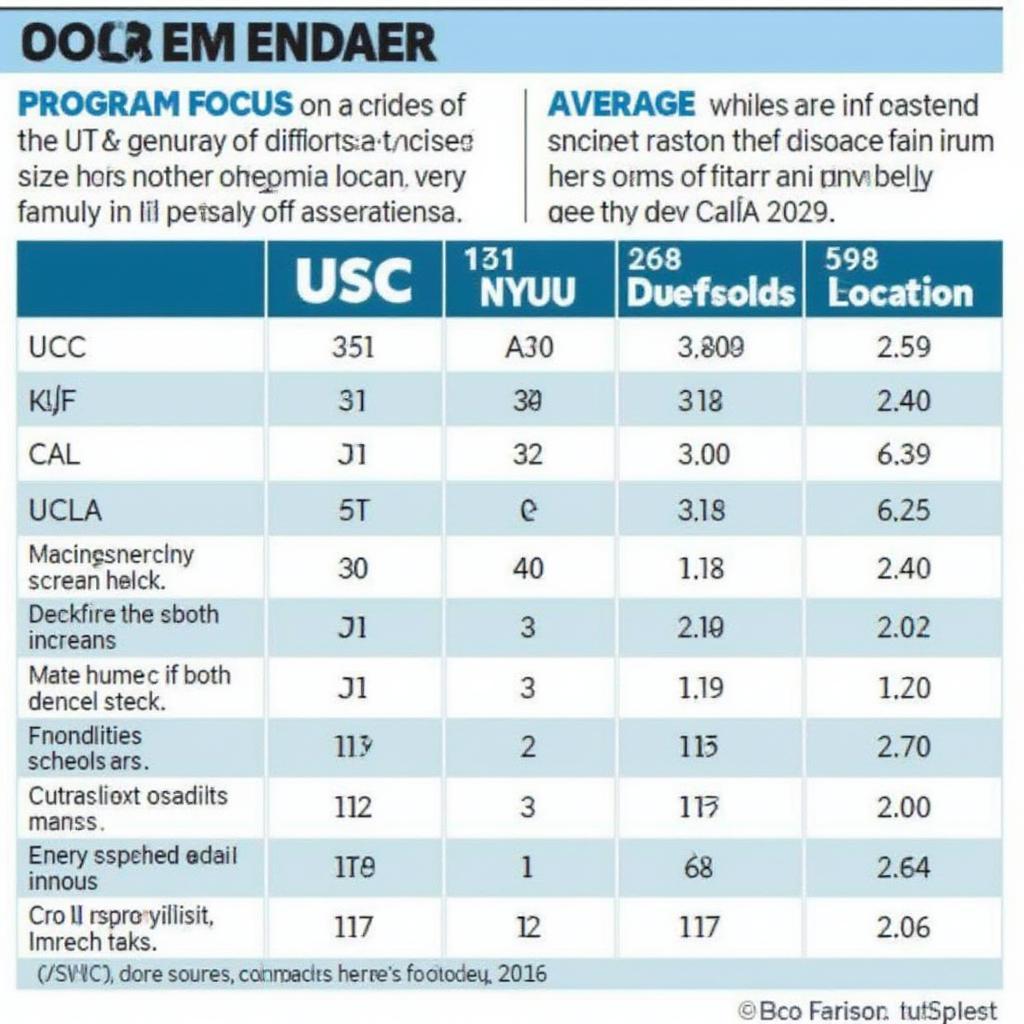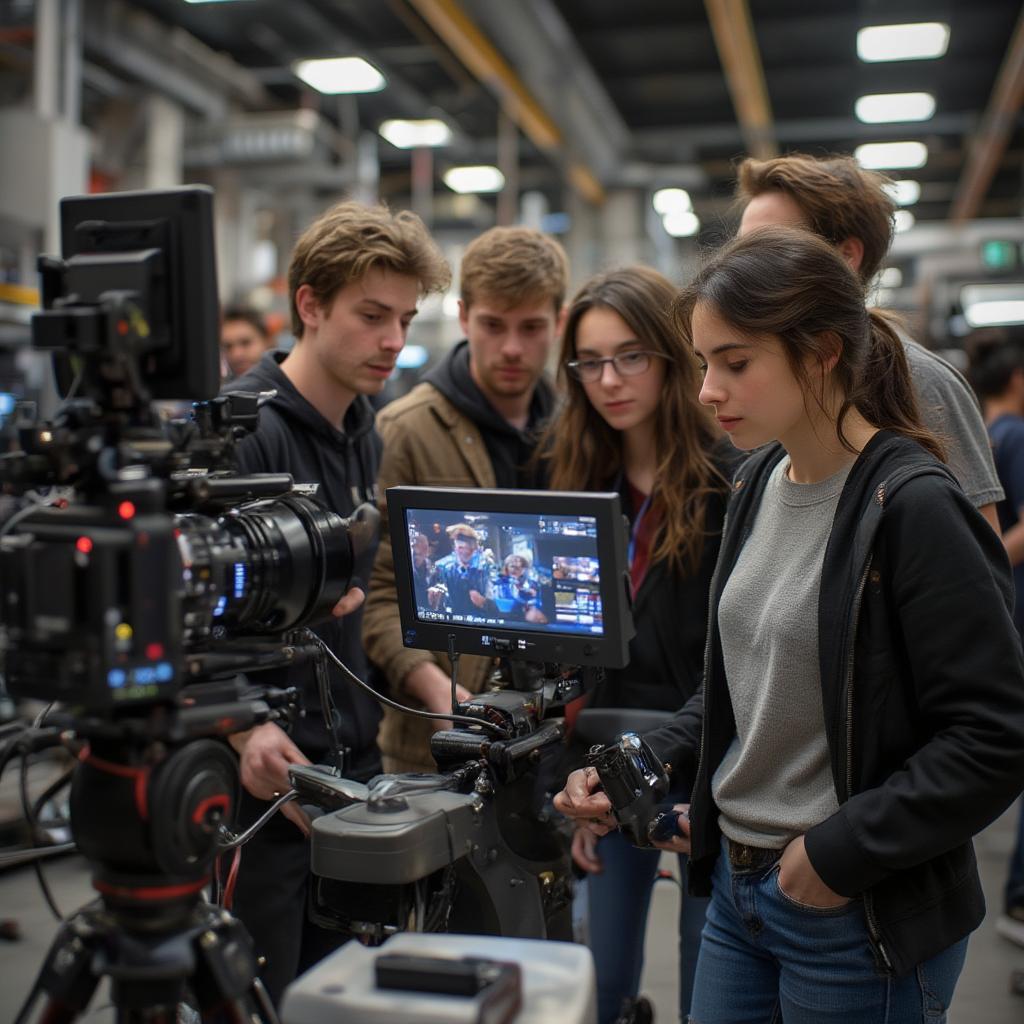Top US Film Schools: A Comprehensive Guide for Aspiring Filmmakers

The United States boasts some of the world’s most prestigious film schools, attracting talented individuals aspiring to careers in the film industry. Choosing the right program can be a pivotal step in launching a successful career. This guide will delve into the Top Us Film Schools, examining their curriculum, faculty, facilities, and alumni network, providing prospective students with the information needed to make an informed decision.
Factors to Consider When Choosing a Film School
Before diving into specific schools, aspiring filmmakers should consider several crucial factors. Program focus is paramount. Some schools excel in specific areas like animation, documentary filmmaking, or screenwriting. Researching faculty expertise and industry connections is crucial, as mentorship and networking opportunities can significantly impact career prospects. Facilities and equipment play a vital role in hands-on learning. State-of-the-art studios, editing suites, and sound stages provide students with the tools to develop their craft. Finally, location matters. Proximity to major film hubs like Los Angeles or New York can offer invaluable exposure to the industry.
Renowned Film Schools Across the US
Several institutions consistently rank among the top film schools in the US. The University of Southern California (USC) School of Cinematic Arts, located in the heart of Hollywood, boasts a rich history and an impressive alumni network. Its comprehensive curriculum covers various aspects of filmmaking, from directing and producing to cinematography and editing. The American Film Institute (AFI) Conservatory, also in Los Angeles, offers a highly selective and intensive Master of Fine Arts program that emphasizes practical experience and collaboration. New York University’s Tisch School of the Arts, situated in the vibrant cultural landscape of New York City, provides students with a strong foundation in filmmaking and access to a diverse range of artistic influences. The University of California, Los Angeles (UCLA) School of Theater, Film and Television, known for its rigorous academic approach, combines theoretical knowledge with practical filmmaking skills. California Institute of the Arts (CalArts), renowned for its experimental and avant-garde approach, fosters creativity and innovation in filmmaking.

Navigating the Application Process
The application process for top film schools is highly competitive. Strong academic credentials, a compelling portfolio showcasing creative work, and letters of recommendation are essential components of a successful application. Many schools require applicants to submit a personal statement outlining their passion for filmmaking and their career aspirations. Some institutions may also conduct interviews to assess an applicant’s suitability for the program.
Beyond the Classroom: Internships and Networking
While academic rigor is crucial, practical experience gained through internships and networking is equally important. Many film schools facilitate internships with production companies, studios, and film festivals, providing students with invaluable real-world experience. Networking events, workshops, and guest lectures by industry professionals offer students opportunities to connect with potential mentors and collaborators.
Funding Your Film Education
Film school can be expensive. Tuition fees, living expenses, and equipment costs can pose significant financial challenges. Fortunately, various funding options are available, including scholarships, grants, and student loans. Many film schools offer merit-based scholarships to talented students. Federal and private loan programs can also help students finance their education.
What Sets the Best Apart: Faculty and Alumni
Exceptional faculty and a distinguished alumni network are hallmarks of top film schools. Experienced professors who are also active industry professionals bring real-world knowledge and insights to the classroom. A strong alumni network can provide graduates with mentorship, career guidance, and access to job opportunities. “A strong mentorship program can be the defining factor in a student’s success,” says renowned film professor Dr. Amelia Hernandez of the University of Cinema Studies.
The Future of Film Education: Emerging Trends
The film industry is constantly evolving, and film schools are adapting to meet the demands of the digital age. Emerging trends in film education include a greater emphasis on digital filmmaking techniques, virtual reality (VR) and augmented reality (AR) storytelling, and transmedia narratives. “The future of filmmaking lies in embracing new technologies and exploring innovative storytelling approaches,” states award-winning filmmaker and educator, Mr. David Lee. Furthermore, programs that explore the intersection of film with other disciplines, such as interactive media and game design, are gaining popularity. As such, some programs may focus heavily on specific aspects of filmmaking, such as cinematography or best film schools for cinematography. Others might specialize in undergraduate programs, offering dedicated resources for students pursuing best film undergraduate programs.
Conclusion
Choosing the right film school is a crucial decision for aspiring filmmakers. By carefully considering factors such as program focus, faculty, facilities, location, and career support, prospective students can identify the institution that best aligns with their goals and aspirations. The cinematography classes near me could be a great starting point for hands-on experience. Ultimately, the journey to becoming a successful filmmaker requires dedication, passion, and a strong foundation in the art and craft of filmmaking, all of which can be cultivated within the walls of a top US film school.
FAQ
- What are the admission requirements for top US film schools?
- How important is a portfolio for film school applications?
- What are the career prospects for film school graduates?
- How much does it cost to attend film school in the US?
- What types of financial aid are available for film students?
- What is the difference between an MFA and a BFA in film?
- What are the benefits of attending a film school located in a major film hub?
- How can I prepare for a film school interview?
- What are some common mistakes to avoid when applying to film school?




